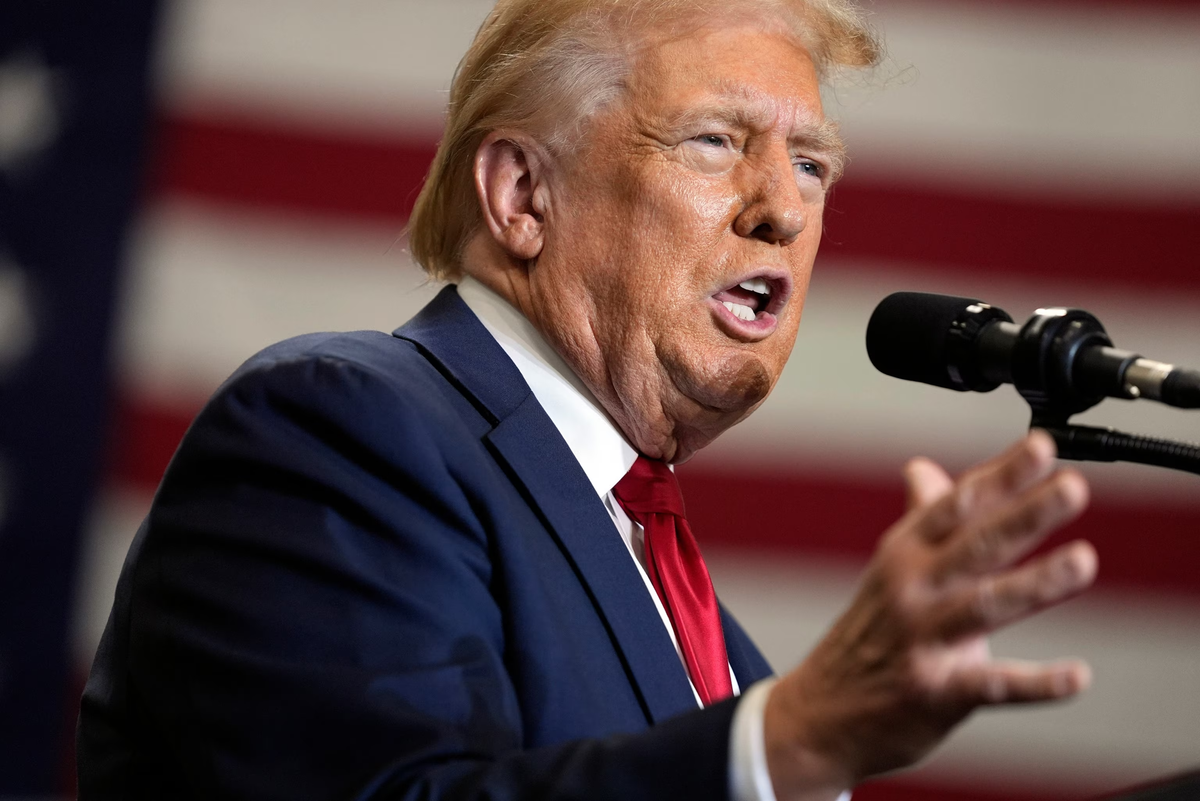Trump isn't pursuing territorial expansion - he's producing the world's most expensive reality show. This isn't a hypothesis or speculation. It's simply what happens when you take a reality TV producer and give him control of international relations.
Trump isn't pursuing territorial expansion - he's producing the world's most expensive reality show. This isn't a hypothesis or speculation. It's simply what happens when you take a reality TV producer and give him control of international relations.
Look at the story beats: First, announce you want Greenland (outrageous demand). When Denmark says no (manufactured conflict), threaten them with tariffs (escalation). Then send Don Jr. on a mysterious "private visit" to Greenland (cliffhanger). This isn't foreign policy - it's Episode 1 of "The Apprentice: Global Domination."
The Panama Canal storyline follows the same production logic. Trump doesn't outline any actual plans for seizing it because that's not the point. The point is to create tension by refusing to rule out force while muttering vaguely about "economic security." It's a teaser trailer for conflict, not a policy position.
The Canada plot line drops all pretense of serious diplomacy. Calling the U.S.-Canada border an "artificially drawn line" isn't meant to be a serious geopolitical argument - it's meant to provoke exactly the response it got: Canada's foreign minister declaring "We will never back down." This is professional wrestling applied to international relations, where the conflict itself is the content.
Even the seemingly random proposal to rename the Gulf of Mexico serves a clear narrative function. It's not meant to be implemented - it's what TV writers call a "bottle episode," a small contained conflict to keep audiences engaged between major plot points. It's perfect reality TV filler: provocative enough to generate headlines, trivial enough to not require follow-through.
Traditional diplomatic analysis fails here because it treats these as failed policy proposals rather than successful narrative devices. When Trump threatens to seize territory, analysts rush to explain why it's practically impossible - missing that the impossibility is precisely what makes it perfect television. The outrage isn't a side effect - it's the deliverable.
This also explains why the threats work regardless of outcome. If Trump somehow acquired any of these territories (he won't), it's a dramatic victory. If he fails (he will), the conflict itself generates enough content to maintain audience engagement. Either way, he achieves his actual goal: keeping himself at the center of a compelling narrative.
The implications are darker than they first appear. Yes, it's somewhat comforting that these territorial threats are performance rather than serious policy. But it means our international relations have become subordinate to the demands of entertainment. Real diplomatic relationships are being damaged not for strategic advantage, but for ratings.
We're watching the final merger of geopolitics and entertainment - a world where diplomatic crises are manufactured not for strategic advantage, but for viral clips and engagement metrics. When Trump threatens Denmark over Greenland, he's not trying to acquire territory - he's creating content. The fact that this content happens to involve nuclear powers and global trade routes is, from a production standpoint, simply what makes it premium streaming material.
The truly dystopian part isn't that Trump is treating international relations like a reality show - it's that it's working. Each outrageous demand generates exactly the serious diplomatic responses and media coverage needed to fuel the next episode. Canada, Denmark, and Panama aren't just countries anymore - they're unwitting cast members in a production they never agreed to join.
This is why focusing on the practical impossibility of Trump's territorial ambitions misses the point entirely. The goal isn't to actually acquire territory - the goal is to create an ongoing series of dramatic confrontations that keep audience attention. From that perspective, every official rejection, every diplomatic protest, every stern condemnation is just more successful content generation.
Welcome to Season 2 of Global Reality Politics, where international relations are judged not by their diplomatic effectiveness, but by their ability to drive engagement.



